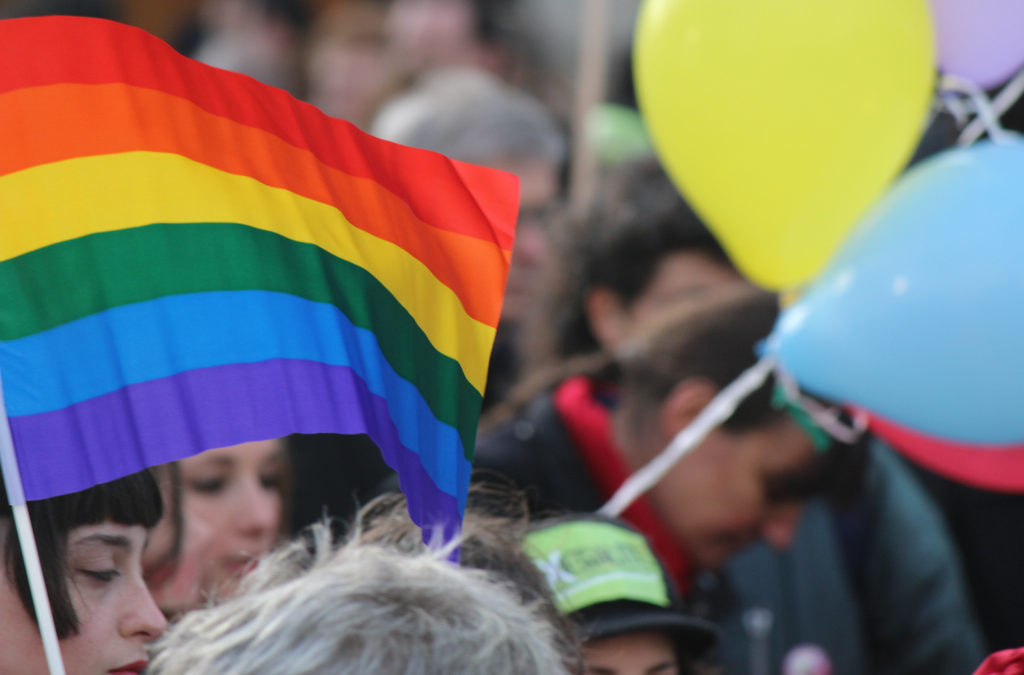How parents treat a child who identifies as LGBT will affect the rest of the child’s life. For parents who lack sufficient knowledge on the subject, it can be difficult to know how to support a LGBT child or adolescent.
When a youth comes out as LGBT, (lesbian, gay, bisexual or transgender), there are a diverse range of reactions families can have. Some may not be surprised, some may be pleased and proud, while others may be concerned, shocked, angry, or hateful toward their child. Some families disown members who are LGBT and refuse all communication with them. This range of reactions comes from a versatile country-wide mixture of cultures, religions and beliefs.
If your child is LGBT they are divergent from the social norm. They will face adversity. You may not understand why they are the way they are. It can be very frightening. However, if love for your child is the underlying force driving you, the right path for your family can be found with perseverance, communication and an open mind.
What does it mean to be LGBT?
LGBT encompasses a group of people who are homosexual, bisexual and gender non-conforming or transgender. Transgender is defined as a person who doesn’t feel that their physical body truly reflects their gender; they identify as the opposite gender.
Everyday more people decide to be honest with their families and come out as LGBT. After polling over 1,000 LGBT people, the Pew Research Center released data that concluded 92 % of America’s LGBT community believe society has become increasingly accepting over the last 10 years. However, this is not necessarily a good representation of how individual families react to the news of a member being LGBT. Research shows that 39 % of LGBT people, most who come out in their youth, have been rejected by family members and close friends because of their sexual orientation.
Being rejected by a family member, a friend or an entire family unit is one of the most emotionally devastating events that can happen in a person’s life. Family acceptance and support affects the quality of life, and mental well-being of LGBT youth.
LGBT youth are more vulnerable to mental health issues, since they typically struggle more with identity issues than heterosexual youth. Family rejection will increase mental health issues like depression, anxiety and suicidal tendencies. The Family Acceptance Project, a group that works to prevent mental health issues in LGBT youth, report that LGBT youth who experience rejection by their families are 8 times more likely to report having attempted suicide than LGBT youth who are not rejected.
When does someone know they are LGBT?
It is a myth that children are too young to truly understand their own sexual identity. Research shows that sexual orientation develops during infancy. Children as young as 2 can show signs of gender identification. Most children have their first crush by age 10. Children who are LGBT become aware of their sexual orientation early on, just as heterosexual children do. The difference is that LGBT children realize they are different than the majority of their peers. They find themselves attracted to the same sex, to both sexes, or they feel as if they were born the wrong gender. This can be confusing for a child. It may stir up feelings of guilt or shame. They might believe that something is “wrong” with them. It is critical that LGBT youth receive support and love from their families so that they can grow up with self-esteem, self-love, goals and a positive outlook on life.
How to support LGBT Youth:
- Encourage them to learn and explore their identity
- Don’t say negative things about their identity or they may feel rejected
- Keep an open mind about LGBT lifestyle and culture
- Connect them with positive LGBT adult role models
- Attend counseling or therapy as a family
- Seek out and join LGBT youth groups
- Attend LGBT events
- Stand up for them if they are being unfairly treated because they’re LGBT
- Communicate to family, friends and neighbors that your child deserves respect and equality
- Communicate openly and honestly with your child
- Express that you love them and are proud of them
Resources:
This will be an ongoing learning experience for your family. Always seek current and accurate information about being LGBT. Below is a list of resources that can benefit you, your family and your child:
The Family Acceptance Project is an initiative that works to support and educate LGBT youth and families, as well as prevent mental health risks. There are many informative publications and resources on their website.
The National LBGT Health Education Center seeks to optimize health care for LGBT people. It provides educational programs and consultations for LGBT people and their families.
PFLAG is an international organization that works to create proud, safe communities for LGBT people. They have a chapter in Pensacola/Emerald Coast.
The Transgender Alliance is a support group in Pensacola, FL for transgender youth and their families. They host free meetings every month at the Ever’man Education Center.
Contact us at Family & Child Development if you have any questions or would like to speak to a therapist who has experience with LGBT youth and family counseling.

